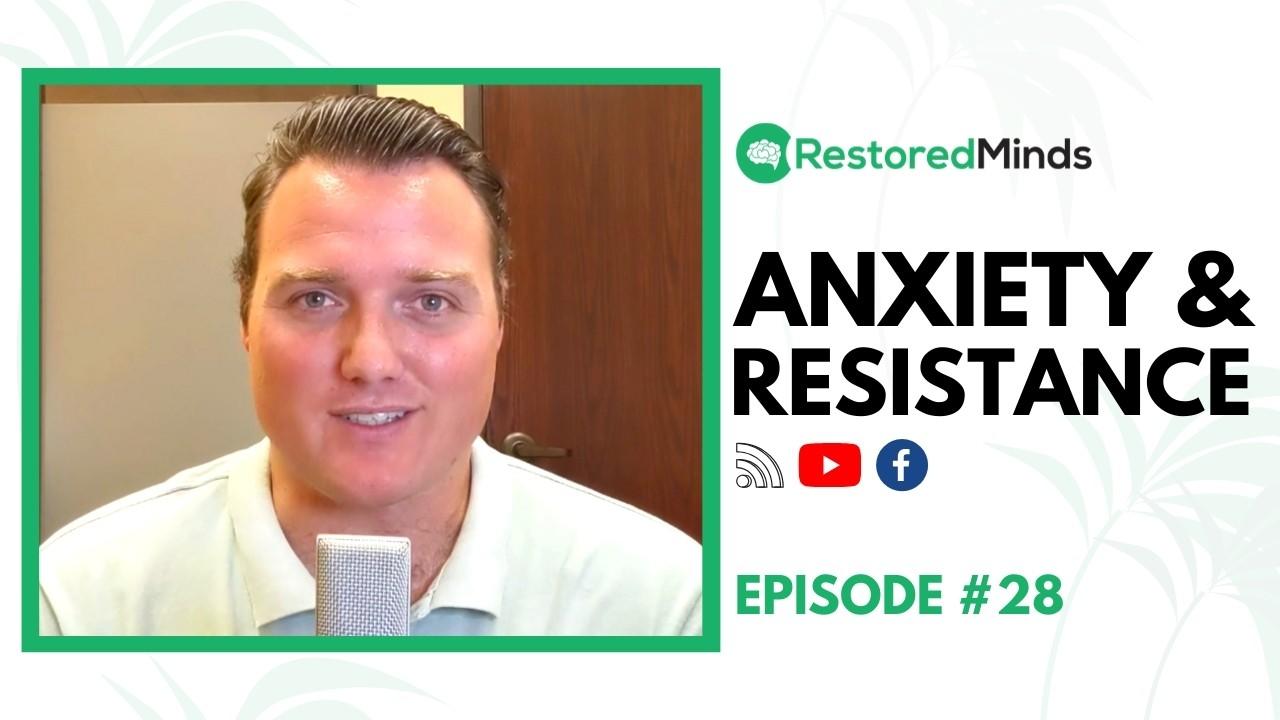Anxiety & Resistance
Apr 15, 2020
The Impact of Resistance on Anxiety
What Is Resistance?
Resistance, by definition, involves an unwillingness to accept or comply with what is happening. Resistance can manifest in various ways, such as frustration, anger, or denial, and it is likely affecting you more than you realize. When we resist the present moment, we only add another layer of emotional pain to an already challenging situation.
The Pain of Resistance
Consider this: You’re frustrated about the ongoing pandemic and the restrictions it has imposed. Getting upset about this reality doesn't change it; instead, it exacerbates your feelings of distress. Imagine being stranded on a desert island and being angry about it—your anger doesn't solve the problem of being stranded. Similarly, resisting the reality of a global pandemic doesn't improve the situation. It simply makes it harder to manage emotionally.
The 'Should' Syndrome
Understanding 'Should' Statements
One of the biggest contributors to our emotional struggles is the concept of 'should.' We often have preconceived notions of how life 'should' be, and when reality deviates from these expectations, we become upset. However, there is no objective way things should be—there is only what is. During crises like a pandemic, accepting the situation as it is, without the added burden of how it should be, can significantly alleviate emotional stress.
Conditional Acceptance vs. True Acceptance
Many of us practice conditional acceptance, accepting situations only when certain criteria are met. However, this mindset can lead to unnecessary frustration and resistance. True acceptance involves a willingness to acknowledge reality as it is, without trying to change it. This doesn't mean you have to like the situation, but acceptance enables you to address problems more effectively and with a clearer mind.
Managing Anxiety Through Acceptance
The Problem with Resisting Anxiety
Resisting anxiety only fuels its intensity. When anxiety arises, trying to shun it away or engaging in avoidance behaviors traps you in a cycle of concern and avoidance. Accepting anxiety, on the other hand, involves acknowledging its presence without judgment or resistance.
Practical Steps to Acceptance
Real acceptance isn't an action but a state of being. Here are some steps to start practicing acceptance:
-
Identify Your Resistance
: Ask yourself, "What am I resisting that is making this problem worse?"
-
Challenge 'Should' Statements
: Notice when you use the word 'should' and challenge these thoughts. Replace "I shouldn't have to be quarantined" with "I am quarantined, now how can I make the best of it?"
-
Focus on Unconditional Acceptance
: Aim to accept people and situations as they are, without preset conditions. This mindset can lead to a more balanced and peaceful internal state.
Moving Forward: Self-Mastery and Emotional Management
During challenging times, maintaining emotional stability is crucial. The ultimate goal is self-mastery, the ability to manage your internal state regardless of external circumstances. By accepting what you cannot change and focusing on actionable solutions, you harness your inner resources more effectively.


